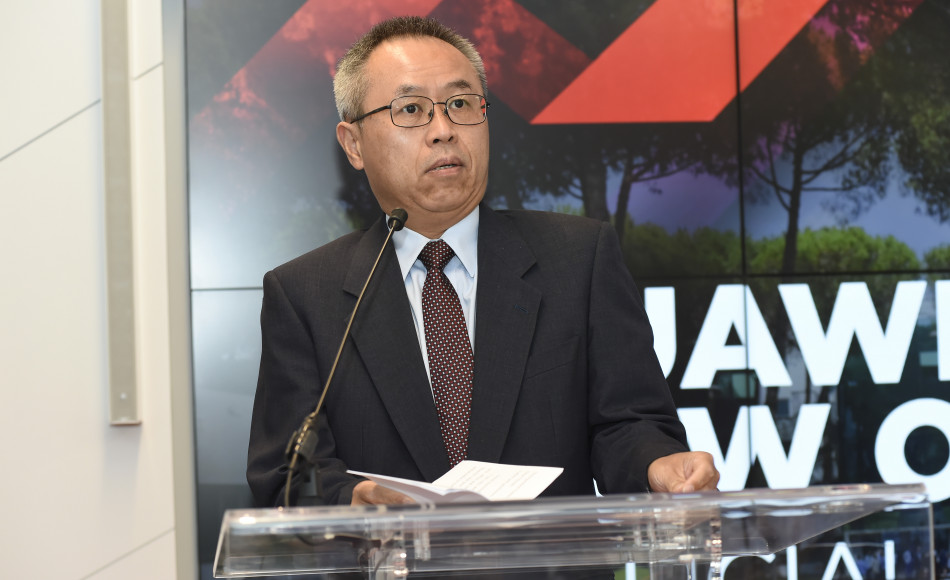The Chinese Embassy in Italy released an acrimonious statement calling on the “croaking” US Secretary of State Mike Pompeo to “quit his show as soon as possible.”
This happened on Thursday morning, following the announcements made by Mr Pompeo after his meetings on Wednesday with prime minister Giuseppe Conte and foreign minister Luigi di Maio. The Secretary of State is actively working to bring Rome over to the American side in what seems to be developing into a new “Cold War” between the US and China.
“In my discussion with prime minister Conte I asked him to mind the privacy of his citizens,” he said, referring to Chinese 5G tech in Italy’s networks. Later, he stated that “the Chinese Communist Party (CCCP) is trying to exploit its presence in Italy for its own strategic objectives, they aren’t here for sincere partnerships.”
The response was brief and scathing. The Chinese embassy in Rome condemned Mr Pompeo for “smearing the CCCP again, baselessly attacking China’s internal logic and trying to destabilise the relations between Italy and China.”
“Mr Pompeo slanders China with the excuse of safeguarding human rights, religious freedom and cyber security. His statements are brimming with ideological prejudices and ignorance about China,” the note reads.
It then goes on to praise the CCCP’s role in giving 1.4 billion Chinese citizens “of all ethnic groups […] a unprecedented sense of satisfaction, happiness and security,” arguing that it’s up to them to judge its performance, and “not certainly to some foreign politician.”
The note ends ominously with an Italian proverb that roughly translates to “what goes around, comes around.”
These remarks lie in stark opposition with the international recognition of the violation of basic rights underway in Hong Kong and across mainland China, and especially in the Xinjiang region, where ethnic and religious minorities (such as Uighur Muslims) are often persecuted, or imprisoned and “re-educated.”
Beijing has a history of denying, dismissing and deflecting accusations, seeking instead to change the narrative around itself by means of foreign influence, propaganda, and – sometimes – fake news.
The clearest example of China wielding its soft power in Italy (and facing the West by extension) came during the early days of the pandemic. During lockdown, together with shipments of physical aid, Beijing unleashed a wave of pro-regime bots on social media, as revealed by Formiche.net.
Moreover, high-ranking Chinese diplomats went as far as posting a doctored video of Italians singing the Chinese national anthem from their balconies (which never happened). They also used the Global Times, Beijing’s English-language mouthpiece, to distort an authoritative interview and suggest that the virus had first appeared in Italy.
But Beijing can also show its teeth through the so-called “warrior wolf” diplomacy, which consists in projecting an assertive image of China abroad. Li Junhua, the Chinese ambassador to Italy, has engaged in such practice in the past.
For instance, in July the Italian leader of the opposition Matteo Salvini organised a flash mob in front of the Chinese embassy to protest the crackdown on human rights in Hong Kong. The embassy took aim directly at him, accusing him of hypocritically fighting for the respect of the law at home and turning a blind eye to “the violent Hongkongers’ deliberate violations of the law.”
More still: Joshua Wong, one of the faces of the pro-democracy movement in Hong Kong, attended an institutional event in the Italian Senate last November. The embassy accused the MPs who had invited him of offering “a platform to a separatist” and supporting “crime and violence”, statements that were strongly rebuked by foreign minister Di Maio.








